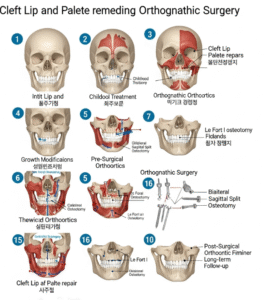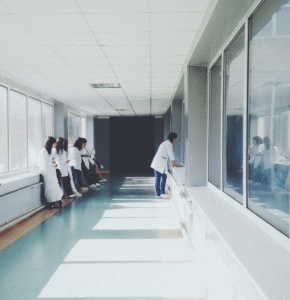Overview
Dyspepsia, commonly referred to as indigestion, is a group of symptoms that affect the upper digestive tract, including discomfort or pain in the upper abdomen, bloating, and nausea. It can be acute or chronic and is often linked to lifestyle habits, dietary choices, or underlying gastrointestinal disorders. In Korea, where the diet is rich in spicy and fermented foods such as kimchi, gochujang, and fermented soybean paste, dyspepsia is a common condition. Korean healthcare provides advanced diagnostic tools, dietary counseling, and effective treatment strategies, combining both modern medicine and traditional Korean approaches.
What is Dyspepsia?
Dyspepsia is not a single disease but rather a cluster of digestive symptoms. It can be classified as:
- Functional dyspepsia: No identifiable structural disease; related to stomach motility or sensitivity.
- Organic dyspepsia: Caused by conditions such as peptic ulcers, gastritis, gallstones, or gastroesophageal reflux disease (GERD).
Symptoms
- Discomfort or pain in the upper abdomen
- Bloating and fullness even after small meals
- Excessive burping or gas
- Heartburn or burning sensation in the chest
- Nausea or occasional vomiting
- Loss of appetite
Causes
- Overeating or eating too quickly
- Spicy, fatty, or highly seasoned Korean foods
- Excessive alcohol or caffeine consumption
- Smoking
- Stress and anxiety
- Medications such as NSAIDs or antibiotics
- Helicobacter pylori (H. pylori) infection
- Underlying digestive conditions (ulcers, GERD, gallstones, gastritis)
Risk Factors
- High intake of spicy or acidic foods
- Family history of gastrointestinal disorders
- Chronic alcohol consumption (common in social culture in Korea)
- Long-term medication use (especially painkillers)
- Older age, where risk of ulcers and gastritis increases
- High-stress lifestyle, common in urban Korean settings
Complications
If untreated, dyspepsia can lead to:
- Peptic ulcers
- Chronic gastritis
- Gastroesophageal reflux disease (GERD)
- Esophageal strictures or Barrett’s esophagus (from acid damage)
- Malnutrition due to poor digestion and food avoidance
Prevention
- Eating balanced, less spicy meals
- Avoiding excessive alcohol and tobacco use
- Managing stress with relaxation techniques or counseling
- Avoiding overeating and late-night meals
- Regular health screenings (gastroscopy is common in Korea)
- Drinking sufficient water instead of carbonated or caffeinated beverages
Treatment Options in Korea
Diagnosis:
- Medical history and physical examination
- Upper endoscopy (gastroscopy), widely used in Korea for early detection of ulcers or cancer
- H. pylori breath or stool test
- Blood tests for anemia or infection
- Abdominal ultrasound or CT scan
Medical Treatments:
- Antacids to neutralize stomach acid
- Proton pump inhibitors (PPIs) or H2 blockers to reduce acid production
- Antibiotics for H. pylori infection
- Prokinetic agents to improve gastric emptying
- Antidepressants (low-dose) for functional dyspepsia linked to stress
Lifestyle & Diet Management:
- Reducing spicy, oily, and heavily seasoned foods
- Eating smaller, frequent meals
- Avoiding late-night eating and heavy alcohol consumption
- Nutrition counseling in hospitals or wellness clinics
Surgical or Advanced Therapies:
- Rarely needed, but surgery may be performed for ulcers or complications not responding to medication.
Rehabilitation & Supportive Care:
- Stress management programs, including meditation and counseling
- Traditional Korean medicine (herbal remedies and acupuncture) for digestive regulation
- Lifestyle coaching for long-term prevention













